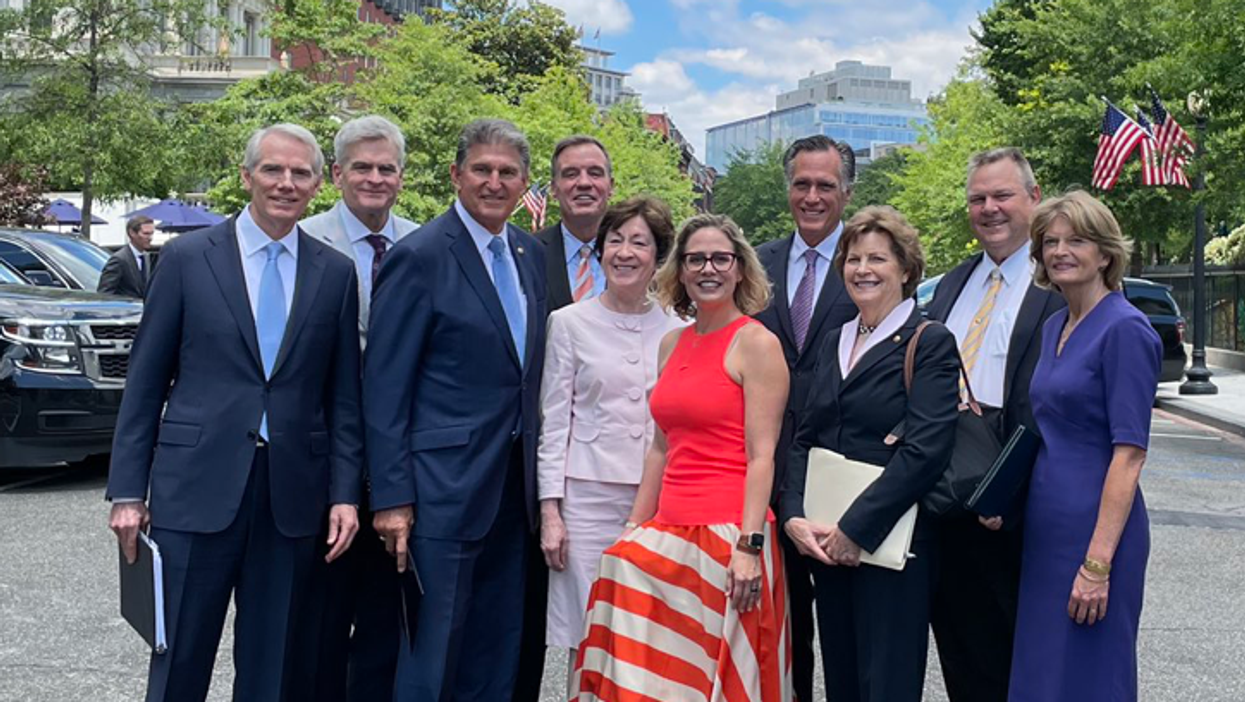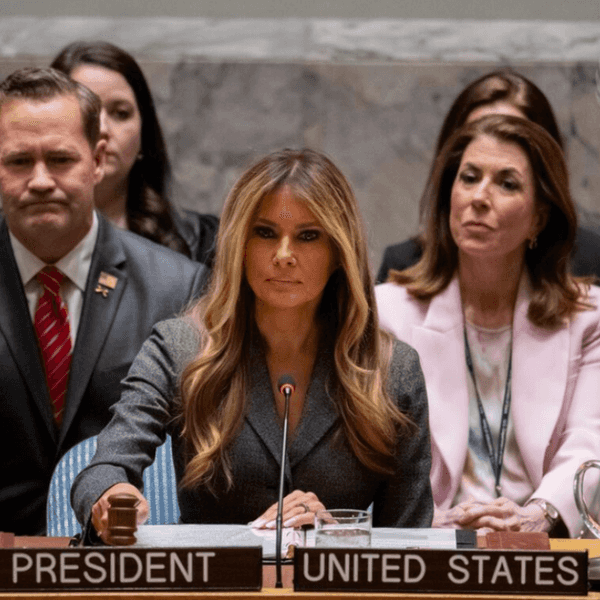Infrastructure Deal Hinges On Additional Climate And Social Spending
Reprinted with permission from American Independent
UPDATE: President Joe Biden hosted the bipartisan Senate group at the White House to confirm the infrastructure deal on Thursday afternoon. "Neither side got everything they wanted in this deal," Biden said. "That's what it means to compromise, and it reflects something important, reflects consensus. The heart of democracy requires consensus." He also said the deal is "in tandem" with an additional bill funding clean energy and human infrastructure programs, to be passed solely by Democrats under budget reconciliation rules -- and that he won't sign one without the other.
A bipartisan group of 10 senators said it had reached a tentative deal with the White House on an infrastructure plan. But while their verbal agreement includes hundreds of billions of dollars in new investment in transportation and water infrastructure, several Democrats are saying they will only support it if it is paired with investments in omitted infrastructure priorities such as climate and caregiving.
Sen. Mitt Romney (R-UT) announced on Wednesday, "Republicans and Democrats have come together, along with the White House, and we've agreed on a framework and we're gonna be heading to the White House tomorrow."
"We have a framework and we are going to the White House tomorrow," said Sen. Bill Cassidy (R-LA).
The group also includes Republicans Susan Collins (ME), Lisa Murkowski (AK), and Rob Portman (OH), as well as Democrats Joe Manchin (WV), Jeanne Shaheen (NH), Kyrsten Sinema (AZ), Jon Tester (MT), and Mark Warner (VA).
In a statement released by the White House, press secretary Jen Psaki said, "White House senior staff had two productive meetings today with the bipartisan group of Senators who have been negotiating about infrastructure. The group made progress towards an outline of a potential agreement, and the President has invited the group to come to the White House tomorrow to discuss this in person."
According to Axios, the plan would call for either $974 billion in infrastructure spending over the next five years or $1.2 trillion over the next eight. About $559 billion of that would be new spending, $20 billion less than was included in the group's earlier proposal.
The senators have not yet announced how it would be funded but claim it is fully paid for.
In March, Biden proposed the $2.25 trillion American Jobs Plan, which would significantly boost investment in roads, bridges, water systems, clean energy, broadband, transit, climate, child care, and caregiving infrastructure. Congressional Republicans unanimously opposed the plan, with many complaining that only roads and bridges really count as infrastructure.
The bipartisan group's plan omits virtually all funding for clean energy, climate, child care, and caregiving infrastructure.
The package would require a three-fifths supermajority in the Senate and a majority in the House. Sen. Chris Murphy (D-CT) suggested on Thursday evening that most Democrats have not yet signed off on the plan. "My sense is that deal right now has 20 votes, not 60 votes. We are going to have to take a deep dive into the agreement they have reached, and, you know, square it with the needs of our voters," he told CNN's Anderson Cooper.
Several of his colleagues have objected to the lack of clean energy and climate investment in the proposal and have said they will only agree to back it if enough Democrats agree to address caregiving and the environment in a separate package that could be passed through budget reconciliation without any GOP support.
Such a deal would likely also include investments in health care, paid leave, child care, pre-K programs, and other priorities included in Biden's original $1.9 trillion American Families Plan.
"We have made our position clear, that the possibility of a bipartisan deal depends on a commitment to move forward on reconciliation," Sen. Brian Schatz (D-HI) told Politico on Tuesday.
"One can't be done without the other," Senate Majority Leader Chuck Schumer told reporters on Wednesday. "We can't get the bipartisan bill done unless we're sure of getting the budget reconciliation bill done. We can't get the budget reconciliation bill done unless we're sure to get the bipartisan — and I think our members, across the spectrum, realize that."
"No climate, no deal," vowed Sen. Ed Markey (D-MA) on June 9.
The need for investment in both transportation and climate infrastructure was illustrated this week by major news stories across the country.
In Washington, D.C., a pedestrian bridge collapsed on Wednesday onto an interstate highway. Several people were injured.
On the West Coast, climate change has fueled massive heatwaves and drought.
Published with permission of The American Independent Foundation.









